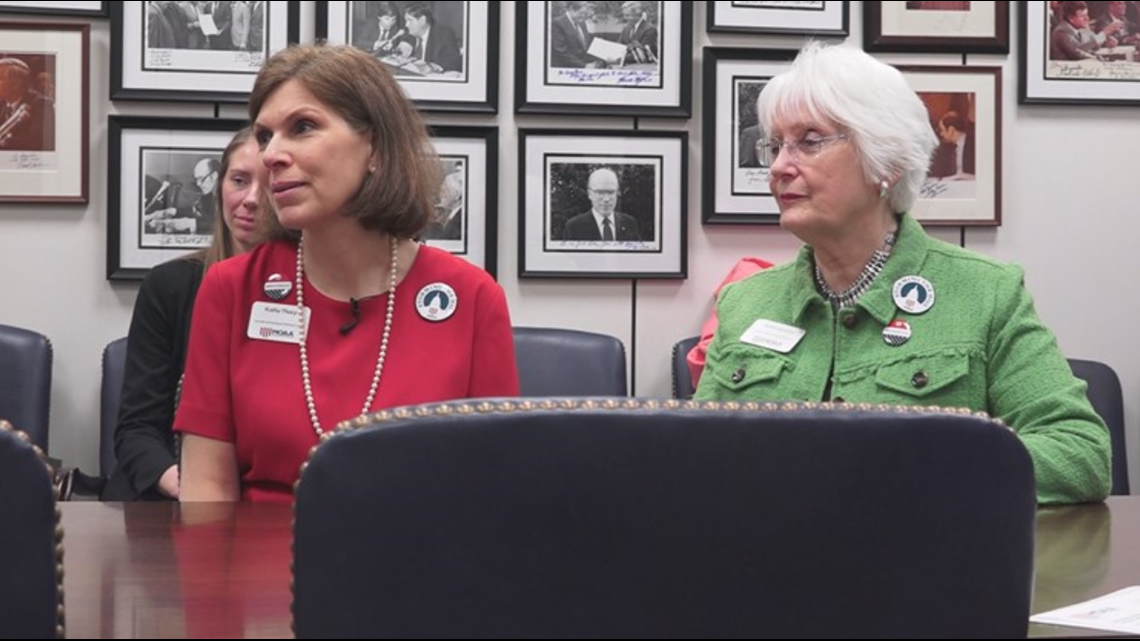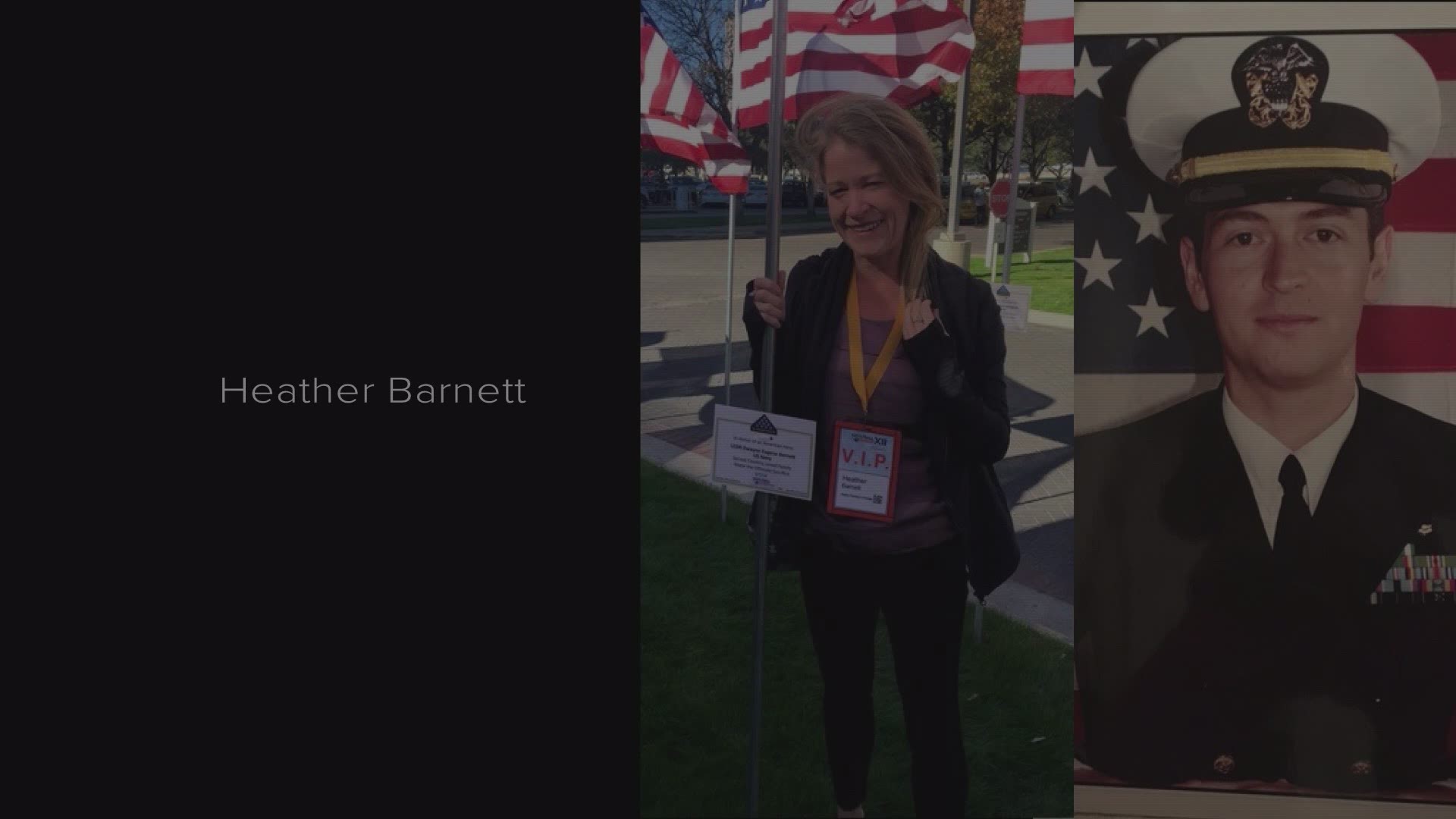WASHINGTON -- In the early morning, before sunrise, Kathy Thorp and more than 200 patriots, a mix group of surviving military spouses and retired service members, fueled up for a day long crusade.
"We've already trained yesterday, spent a good two or three hours getting everybody prepared with the materials, and how to get around on Capitol Hill," said USAF retired Col. Dan Merry, vice president of Government Relations at Military Officers Association of America.
"I think we're all going to get on the same bus together," Thorp said.
WUSA went along with Thorp and a group of surviving military spouses and boarded one of three buses.
A team of people represent each state. We rode through rush-hour traffic and arrive in full force to the destination -- Capitol Hill. It was after sunrise, and in the spirit of preserving the moment, they took a group picture.
The surviving spouses were ready to go to work. They teamed with the MOAA to target all 532 lawmakers with their message. They want Congress to do what's right and give them back their benefits.
The Dependency and Indemnity Compensation, or DIC, is a benefit the Veterans Administration determined spouses are eligible to receive.
The monthly $1,300 tax-free benefit is paid to survivors of service members who have died in the line of duty, or if their death is due to a service-related injury or disease.
But surviving spouse Nancy Mullen said, "I lose a full $1,000 a month because of the offset."
That's because in 1972, Congress established the Survivor Benefit Plan, or SBP. The annuity is one military members pay into with their own money.


RELATED: Surviving military spouses to US lawmakers: We are not taking care of our fallen veterans' families
Surviving military spouses thought they would receive a combined monthly payment of the SBP and the DIC. But existing law prevents more than 65,000 spouses from collecting both federal benefits, even though the SBP is an insurance program.
MOAA said that costs survivors about $12,000 a year.
"Simply put, it's really a way for the federal government to save a few bucks by simply ripping off military widows," said Sen. Doug Jones, D-Alabama.
LINK: Read the full bill: H.R. 553 Military Surviving Spouses Equity Act
Jones introduced the Senate bill to repeal that reduction of survivor benefits. So far, Jones has received more than 50 of the 60 cosponsors needed to bring the legislation to the floor for a vote.
"Have your folks in those states contact their senators and say, 'This bill has momentum. You don't want to be left out of this. This is a big deal for spouses,'" Jones said.


For four miles, WUSA walked with them, crisscrossing on the grounds of the Capitol, through tunnels and hallways to the offices of Senate and House members.
They stopped at House Majority Leader Rep. Steny Hoyer's, D-Md., office. The Congressman from Maryland is a strong supporter of the military. However, he has not signed on as a cosponsor.
Hoyer's National Press Secretary, Annaliese Davis, said that "Congressman Hoyer does not typically cosponsor legislation that is not based on local issues."
MOAA member Bob Norton said, "I was particularly struck when Kathy made the point that there are over 200 cosponsors on this bill, and, that's just in the first three months of this session. That says a lot to a senior leader like Congressman Hoyer."
During the seven-hour trek, the group that traveled to Capitol Hill realized that it would not be their last visit to Hoyer's office.
But their persistence did pay off. After multiple visits and a flood of calls from constituents, Rep. David Trone, D-Md., is finally on board.
"I got a little emotional, but he was very accommodating because of the personal effect it has with me," Regina Chavis said.
Chavis is a surviving military spouse from Maryland.
"He's definitely going to sign on for the SBP-DIC program. He shook hands. His assistant guaranteed that, so we're very excited," she said.
"It's getting the word out, educate people and say, 'This is something you all need to understand because it will affect you,'" Thorp said.
Sign this petition and check here to learn how you can help surviving military spouses.
Take action: Show your support. Call and ask to be connected to your lawmakers at the U.S. House of Representatives 202-225-3121, or U.S. senators at 202-224-3121.


